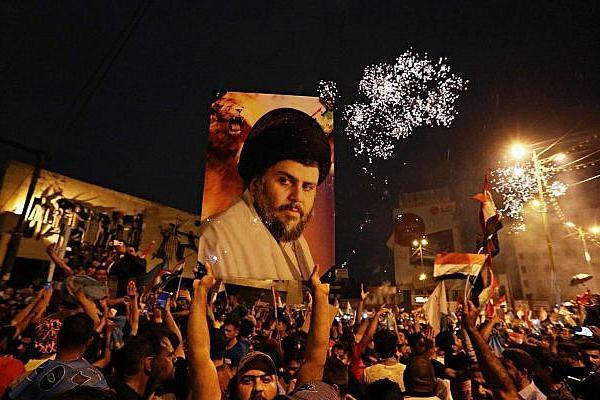Iraq’s al-Sadr is promising reform, constrained by Iran
BAGHDAD - The Associated Press


Iraq’s Muqtada al-Sadr, the maverick Shiite cleric whose political coalition beat out Iran’s favored candidates to come in first in national elections, says he wants to form a government that puts Iraqis first.
The electoral commission announced early on May 19 that the militant-turned-populist preacher, who has long spoken out against both Iranian and U.S. influence in Iraq, had defeated his establishment rivals.
Al-Sadr - who is remembered for leading an insurgency against U.S. forces after the 2003 invasion - did not run for a seat himself and is unlikely to become prime minister, but will command a significant number of seats and has already begun informal talks about government formation.
Salah al-Obeidi, a spokesman for al-Sadr’s Sa’eroun political bloc, told The Associated Press that Iraq’s sovereignty was going to be the new government’s “guiding principle.”
“We warn any other country that wants to involve itself in Iraqi politics not to cross the Iraqi people,” he said.
However, even as al-Sadr is in position to nominate a prime minister and set the political agenda for the next four years, he will find his choices limited by Iran.
The Middle East’s pre-eminent Shiite power has a direct line with some of Iraq’s most powerful politicians, and it is trying to rally them as a bloc to undercut al-Sadr.
Al-Sadr’s rise threatens Iran’s claim to speak on behalf of Iraq’s Shiite majority, a precedent that could fuel independent Shiite movements elsewhere. Also at stake are top ministerial posts - political appointments that are a source of patronage and police and military power.
Al-Sadr himself has kept a relatively low public profile. But in a public relations move that appeared to be directed at Iran, he appeared on May 17 with rival cleric Ammar al-Hakim, who has drifted away from Iran’s orbit in recent years, to say the two men share similar visions for the next government.
Tehran has dispatched its top regional military commander, Gen. Qassem Soleimani, to pull together a coalition to counterbalance al-Sadr, according to an Iraqi Shiite militia commander who is familiar with the meetings.
“Iran won’t accept the creation of a Shiite bloc that is a threat to its interests. It’s a red line,” said the commander, who spoke on the condition of anonymity because of the sensitivity of the discussions.
Hanging above the talks is the implied threat by all sides to mobilize their followers - and militias - if they feel they are being shortchanged.
The collective effect could be to push al-Sadr’s bloc toward a broader governing coalition that would dilute his reform agenda.
His top showing at the ballot box means the next prime minister will have to introduce a civil service law that al-Sadr has championed as an antidote to Iraq’s endemic corruption, said Kirk Sowell, the publisher of Inside Iraqi Politics, a political and security newsletter. But that doesn’t mean the Cabinet or parliament will sign off on it.
